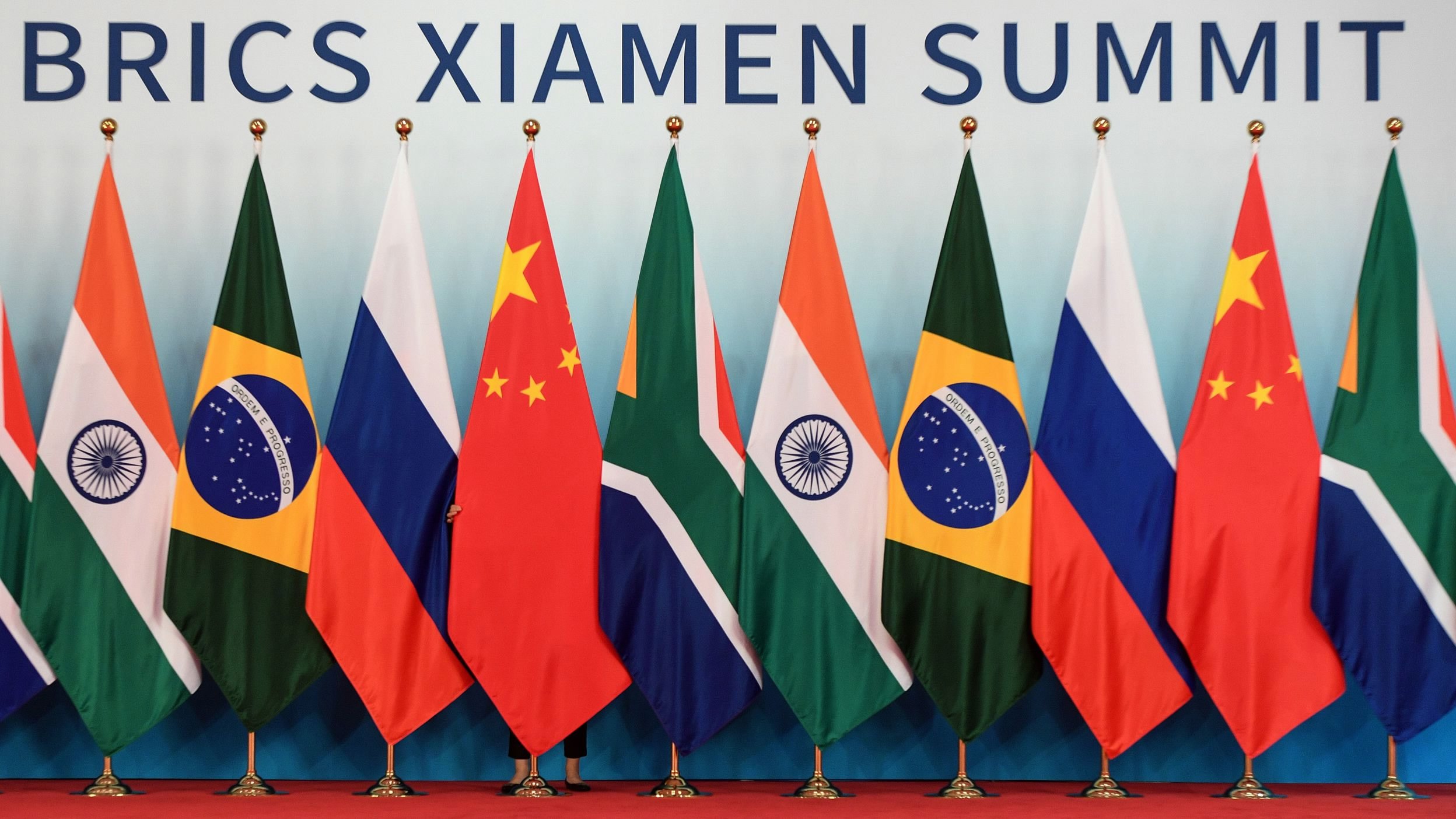
Business
22:08, 04-Sep-2017
Looking ahead: What is the future of BRICS?
By CGTN’s Dean Yang

What will BRICS – the bloc of emerging markets comprised of Brazil, Russia, India, China and South Africa – look like in the future? A leading Chinese specialist in trans-continental cooperation told CGTN that it remains to be seen.
An open future
BRICS has a more integrated and comprehensive structure than a trade agreement, said Wang Lei, director of the BRICS Cooperation Center at Beijing Normal University. He mentioned that BRICS taps into a different source of connection among its member states – not geographical proximity like the European Union – but rather shared interests across many fronts including the economy, politics and education.
“Whether BRICS will become a strategic alliance or certain kind of custom union is an open question to which there is no simple answer, but in the future, BRICS will be more inclusive and open,” he said.

VCG Photo
VCG Photo
No big brother
The geographical separation and ideological distinctions between some of its member states have caused BRICS to look beyond traditional geopolitical grounds on which to build their partnership.
“It’s really hard for BRICS countries to overcome geographical limitations, yet they have founded their cooperation on the principle of equality and a shared urge to develop peacefully," Wang said.
For Wang, the principle is not just the moral foundation for the BRICS partnerships, but also a practical outlook with which the five powers can work with each other.
“It’s really hard for any of the five countries to seek the role of big brother because they are all major powers in their respective regions.”
This is one reason why Wang doesn’t endorse the vision of China overseeing all decisions within BRICS. This view complements what he sees as a convention in China’s foreign policy of keeping a low profile, and dismissing the ambition of seeking global leadership.
Since its advent 10 years ago, the total share of the BRICS economies globally have risen from 12 to 23 percent.
However, the plateauing demand worldwide, a result of the global financial crisis, has cooled down the growth engines of the major emerging markets, who rely heavily on the export of assembled goods or natural resources.
A recent shift in ethos towards anti-globalization and protectionism during the post-crisis period is threatening to put global growth further in danger.
BRICS Plus
This backdrop affects what BRICS might look like down the road, as it looks to widen cooperation among fellow emerging markets. Part of this plan is "BRICS Plus" approach, a concept first floated by Chinese Foreign Minister Wang Yi in March.
In the form of dialogue, the idea is to “widen the BRICS circle of friends” and turn the partnership into the most important platform for South-South cooperation, according to Wang.
The Xiamen summit is putting this concept into practice with top leaders from five emerging markets outside of the BRICS bloc also participating in the talks from September 3 to 5.
Economic globalization should be "open, inclusive, balanced and beneficial to all," added the Chinese president on Monday.

SITEMAP
Copyright © 2018 CGTN. Beijing ICP prepared NO.16065310-3
Copyright © 2018 CGTN. Beijing ICP prepared NO.16065310-3